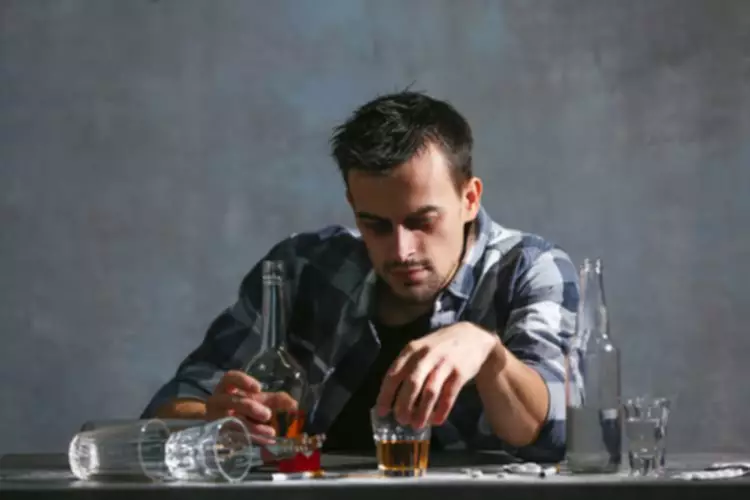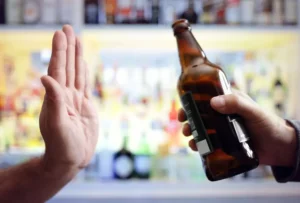
The FDA approved the drug for abstinence maintenance in detoxified alcoholics 21 years ago, in 2004. Acamprosate restores the glutamate-related brain systems that are abnormal in patients with AUD, especially during acute and prolonged withdrawal. Patients report naltrexone takes most of the fun out of alcohol, preventing binge drinking and reducing drinking. If the goal is drinking less rather than quitting altogether, naltrexone certainly helps individuals regain control https://ecosoberhouse.com/ by making alcohol less appealing. Naltrexone is metabolized in the liver and contraindicated in patients with acute hepatitis and liver failure. Another newer treatment option for TRD is ketamine, a drug that has been used since the 1970s for anesthesia.
Treatment for Co-Occurring Depression and Alcohol Addiction
- Drinking alcohol can become a coping mechanism to deal with feelings of hopelessness, numbness, guilt, and worthlessness.
- These additional conditions should be addressed as part of a comprehensive treatment plan.
- A dual diagnosis can be complicated to treat, no matter the circumstances.
- But she recommends other FDA-approved medications as first-line options, reserving disulfiram for rare cases when potential benefits outweigh the risks.
- However, the majority of these trials demonstrated that these medications had virtually no effect on reducing excessive drinking.
These medications have been shown to work better than placebo in adults, with some of the most helpful options being SSRIs like Lexapro (escitalopram) and SNRIs like Effexor (venlafaxine). Alcohol use disorder (AUD) can occur alongside depression and vice versa. Our program addresses physical, nutritional, chemical, environmental, emotional, social, spiritual, lifestyle values, and challenges.
- Alcohol use disorders may be mild, moderate, or severe, depending on the combination of symptoms you’re experiencing, but drinking problems can exist regardless of a clinical diagnosis.
- Systematic policies are needed to expand the use of medications when treating alcohol use disorder in inpatient and outpatient populations.
- Despite the availability of several evidence-based medications and behavioral therapy approaches for treating co-occurring AUD and depressive disorders, improvements in treatment for this population are clearly needed.
- As a result, you could drain your bank account, lose a job, or ruin a relationship.
- For those struggling with depression, prioritizing mental health and treatment effectiveness should be the primary focus.
Top Medications for Alcohol Use Disorders With Depression
In contrast, Sarah Axelrath, an addiction specialist trained at Massachusetts General Hospital (MGH) and currently at the Colorado Coalition for the Homeless in Denver, argues that disulfiram should not be a first-line treatment for AUD. She acknowledges disulfiram can be effective for patients highly motivated toward abstinence who have no medical or psychiatric contraindications and who possess strong family support. But she recommends other FDA-approved medications as first-line options, reserving disulfiram for rare cases when potential benefits outweigh the risks.
Treatment for Co-Occurring Depression and Alcohol Use Disorder
Naltrexone is an opioid receptor antagonist approved by the FDA in 1995 for treating alcohol dependence as an oral preparation and, in 2006, as a long-acting injectable. Naltrexone blocks the rewarding effects of alcohol, a hypothesis supported by numerous preclinical and clinical studies. This means that naltrexone blocks the buzz of opioids or alcohol, preventing intoxication with one daily pill. Because many patients didn’t take their naltrexone pill as prescribed, injectable naltrexone was developed.

Detox should not be considered as a replacement for comprehensive rehabilitation, but it remains an indispensable step during early recovery efforts. Medical detox entails a set of interventions designed to help you wean off alcohol gradually and safely to minimize the risk of harm and unpleasant or even dangerous side effects. It probably won’t hurt to have a glass of wine or beer once in a while for social reasons unless you have a health condition that prevents you from drinking.

Types of Antidepressants
Combining these alcohol deterrent medications with antidepressants can provide a more comprehensive approach to treating co-occurring alcoholism and depression. However, it’s essential to carefully monitor for potential interactions and side effects when using multiple medications. Individuals alcoholism treatment with mental health conditions may be more likely to use alcohol as a treatment.

“An experienced psychiatrist or another mental health professional familiar with mood disorders and the effects of alcohol abuse can be instrumental in recommending appropriate medications and monitoring medication efficacy,” says Kennedy. Alcohol abuse and dependence are both considered an alcohol use disorder, with studies finding that alcohol dependence is more closely tied to the persistence of depressive disorders. A 2019 review reveals that depressive disorders are the most common mental health disorders in people with AUD.
- Clinicians are typically expected to decide how to treat depression in patients who are actively drinking, without benefit of observing that patient during an extended period of abstinence.
- He recommended rejecting the idea that acamprosate or naltrexone must be a first-line treatment; instead, he proposes using disulfiram as a first-line treatment.
- But for many, it’s a quick route to depression and boozing, researchers reported in a study published Jan. 10 in the journal Aging and Mental Health.
- Stephanie attributes a large portion of her success to the supportive culture and strong sense of community fostered by the Agape team.
The does alcohol make depression worse TLFB is a widely used measure with demonstrated high reliability and clinical validity (Sobell & Sobell, 1992; Sobell, Sobell, Toneatto, & Shillingford, 1994). In this study, data regarding mean alcohol drinks per day in the past month were used. Several medications and behavioral treatments can help with both depression and AUD.
- For the present study, only baseline data are reported, which included the following measures, in addition to age, ethno-racial group, and homelessness.
- Individuals with mental health conditions may be more likely to use alcohol as a treatment.
- At the same time, people with depression may attempt to self-medicate with alcohol.
- John C. Umhau, MD, MPH, CPE is board-certified in addiction medicine and preventative medicine.
Traditionally, placing patients in 28-day inpatient settings, which helped patients abstain from alcohol, easily permitted an independent depressive disorder to be identified and treated. This practice is much less of an option in today’s US health care environment, and this has challenged us to rethink our clinical management of these patients. These disorders are characterized by disrupted mood (e.g., low, numb, or irritable), along with an array of cognitive (e.g., feelings of worthlessness and difficulty concentrating) and physical (e.g., fatigue and lack of energy) symptoms. Many who struggle with alcohol use disorder (AUD), commonly known as alcohol addiction, may also find themselves struggling with co-occurring mental health disorders. It is characterized by feelings of intense sadness and can last for months or even years. Luckily, effective dual diagnosis treatment for AUD and depression exists and can help one achieve and maintain recovery.


